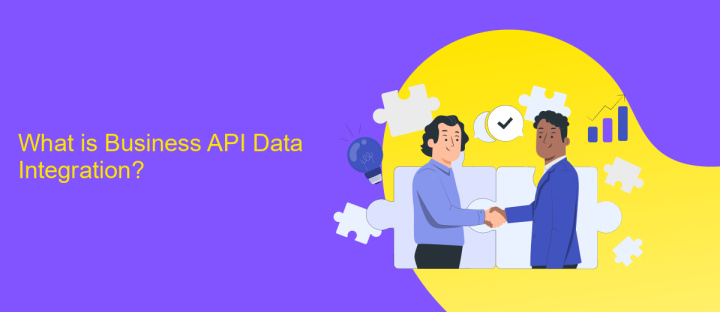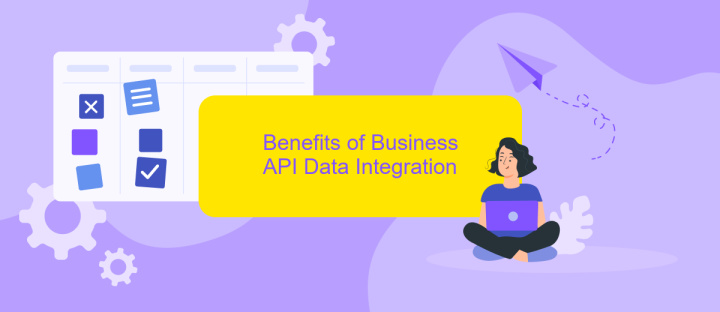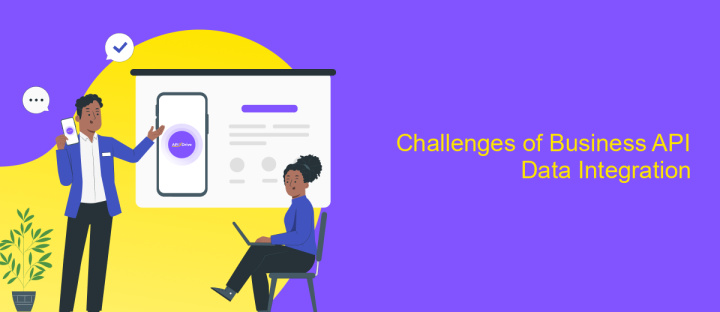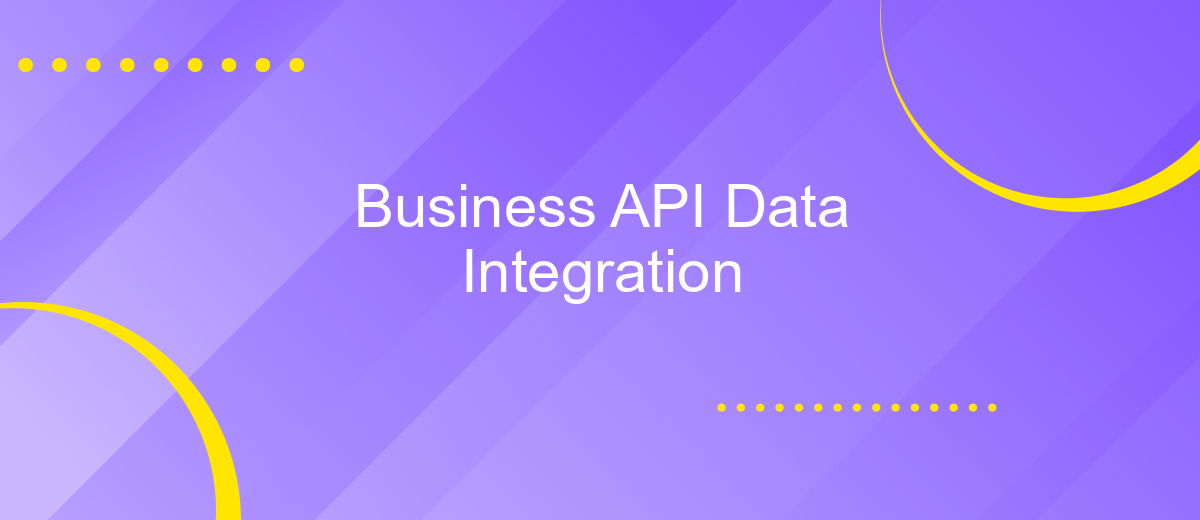Business API Data Integration
In today's digital age, seamless data integration is crucial for businesses aiming to enhance operational efficiency and drive innovation. Business API Data Integration facilitates the smooth exchange of information between disparate systems, enabling companies to streamline processes, improve data accuracy, and make informed decisions. This article explores the key benefits, challenges, and best practices for implementing effective API data integration in a business environment.
Introduction
In today's rapidly evolving digital landscape, businesses need efficient and seamless methods for integrating various data sources. Business API data integration has emerged as a vital solution, enabling organizations to streamline operations, enhance data accessibility, and drive innovation. This process involves connecting disparate systems and applications through APIs (Application Programming Interfaces) to facilitate data exchange and interoperability.
- Improved operational efficiency through automated data workflows
- Enhanced data accuracy and consistency across platforms
- Real-time data access and updates for better decision-making
- Scalability to accommodate growing business needs
- Reduced development time and costs
By leveraging business API data integration, companies can unlock new opportunities for growth and competitiveness. It not only simplifies complex data management tasks but also empowers businesses to respond swiftly to market changes and customer demands. As a result, organizations can focus more on strategic initiatives and less on manual data handling, leading to improved overall performance.
What is Business API Data Integration?

Business API Data Integration refers to the seamless connection and communication between different software applications and systems within a business through Application Programming Interfaces (APIs). This integration allows for the automated exchange of data, reducing the need for manual data entry and minimizing errors. By leveraging APIs, businesses can ensure that their systems are always in sync, providing real-time data updates and enhancing overall operational efficiency.
One of the key advantages of Business API Data Integration is the ability to connect disparate systems, such as CRM, ERP, and marketing platforms, to create a unified workflow. Services like ApiX-Drive facilitate this process by offering a user-friendly platform to set up and manage these integrations without requiring extensive technical knowledge. With ApiX-Drive, businesses can easily automate data transfers, streamline processes, and focus on strategic tasks, thereby improving productivity and decision-making capabilities.
Benefits of Business API Data Integration

Integrating Business APIs into your data systems can significantly enhance operational efficiency and data accessibility. By leveraging APIs, businesses can seamlessly connect disparate systems, enabling real-time data exchange and streamlined workflows. This integration not only reduces manual data entry but also minimizes errors, leading to more accurate and timely decision-making.
- Improved Efficiency: Automation of routine tasks and processes.
- Enhanced Data Accuracy: Reduced manual entry errors.
- Real-Time Data Access: Instant access to up-to-date information.
- Scalability: Easily scalable to accommodate growing data needs.
- Cost Savings: Lower operational costs through automation.
Overall, Business API data integration provides a robust framework for enhancing the agility and responsiveness of your organization. By adopting this technology, businesses can stay competitive, adapt to market changes swiftly, and provide better services to their customers. Embracing API integration is a strategic move towards a more connected and efficient business environment.
Challenges of Business API Data Integration

Integrating Business APIs often presents numerous challenges that can hinder seamless data exchange. One of the primary issues is ensuring data consistency and accuracy across different systems. When data is transferred between multiple platforms, discrepancies can arise, leading to potential errors and misinterpretations.
Another significant challenge is the security of data during transmission. Sensitive business information must be adequately protected against unauthorized access and breaches. This requires implementing robust encryption methods and adhering to stringent security protocols.
- Compatibility issues between different API standards and versions
- Scalability concerns when handling large volumes of data
- Latency and performance issues affecting real-time data processing
- Complexity in managing and maintaining multiple API connections
Addressing these challenges requires a strategic approach, including thorough testing, continuous monitoring, and adopting best practices in API management. By doing so, businesses can ensure efficient and secure data integration, ultimately enhancing their operational effectiveness.
Conclusion
In conclusion, the integration of Business API data is a pivotal step for modern enterprises aiming to streamline operations and enhance decision-making processes. By leveraging APIs, businesses can ensure seamless communication between different software systems, thereby improving efficiency and reducing the risk of errors. The ability to automate data flow between disparate platforms not only saves time but also provides a more accurate and comprehensive view of business metrics.
Services like ApiX-Drive play a crucial role in facilitating these integrations by offering user-friendly tools that simplify the setup and management of API connections. With ApiX-Drive, businesses can easily connect various applications and automate workflows without requiring extensive technical expertise. This democratization of API integration empowers organizations of all sizes to harness the full potential of their data, driving innovation and competitive advantage in an increasingly data-driven world.
FAQ
What is Business API Data Integration?
How can API integration benefit my business?
What are the common challenges in API integration?
How do I choose the right API integration platform?
Can I automate API integrations without coding skills?
Routine tasks take a lot of time from employees? Do they burn out, do not have enough working day for the main duties and important things? Do you understand that the only way out of this situation in modern realities is automation? Try Apix-Drive for free and make sure that the online connector in 5 minutes of setting up integration will remove a significant part of the routine from your life and free up time for you and your employees.

